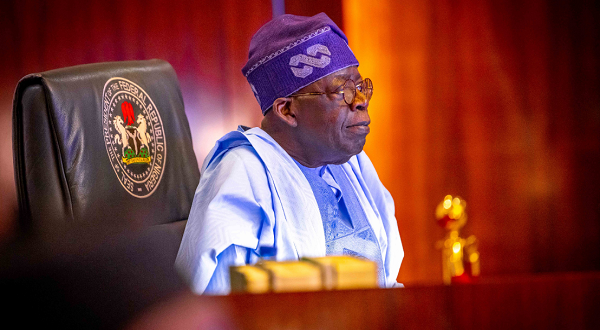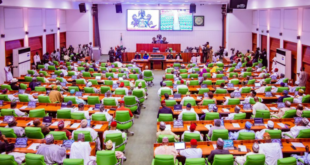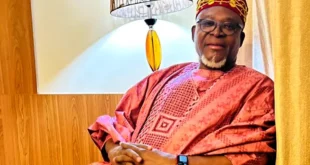Ten years ago, on April 14, 2014, 276 girls were abducted from their school in the town of Chibok, northeastern Nigeria, by the terrorist group Boko Haram.
The event sparked international outrage and the #BringBackOurGirls campaign.
Today, as Nigeria marks a decade since the tragic event, President Bola Tinubu has addressed the progress made and the challenges that still remain in the country.
In a recent article, President Tinubu highlighted that, unlike the slow response to the Chibok incident, the Nigerian government and security forces acted swiftly when 137 children were abducted from a school in Kaduna, northwestern Nigeria, in March 2024.
The children were rescued within a fortnight, but concerns about kidnappings persist.
The president emphasized that the nature of the threat has changed over the years.
Boko Haram, once a powerful terrorist organization, has splintered, and the mass abductions are now primarily carried out by criminal gangs seeking ransom.
Tinubu stated that paying ransoms only perpetuates the problem and that the government will not pay ransoms anymore.
Instead, the president stressed the need to address the root causes of insecurity, such as poverty, inequality, and lack of opportunity.
The Nigerian economy, which has been struggling for decades, has been a major factor in the country’s security issues.
The government has implemented tough economic reforms, including the removal of a fuel subsidy that cost the country $10 billion annually and the floating of the naira.
These reforms have caused short-term pain, but President Tinubu believes they are necessary to arrest the economic rot that lies at the heart of insecurity.
The reforms have already shown positive results, with foreign currency inflows increasing and the naira beginning to stabilize.
The president concluded by stating that Nigeria will no longer pay the price for its past mistakes and that the government is committed to creating an enabling environment where the private sector thrives, jobs are created, and opportunity is spread across the country.
This, he believes, is the key to ensuring that children can go to school without fear.
As Nigeria marks ten years since the Chibok tragedy, the country continues to face challenges in addressing insecurity and economic issues.
However, the government’s commitment to implementing tough reforms and taking a hard line against ransom payments is a step in the right direction toward a more secure and prosperous future.
Subscribe to the Advocate News letter and receive news updates daily in your inbox.
 Advocate.ng Latest news update on politics, entertainment, sport and more
Advocate.ng Latest news update on politics, entertainment, sport and more




